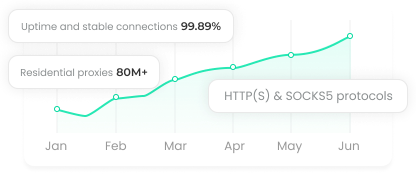How to Pick the Right Hosting in 2025

Your website's strength depends on its hosting—this is more than a saying, it's a fact. In 2025, fast loading and reliable uptime are essential. Even a one-second lag can drive visitors away, and a server outage can cost you sales and harm your reputation. Hosting isn't merely a technical choice; it's the backbone of your business.
So, what's the best hosting option today? Shared, VPS, or cloud? Let's cut through the noise and break down each one. We'll cover who it's for, pros and cons, and when to upgrade. No jargon. No guessing. Just what you need.
Shared Hosting
What is it?
Think of shared hosting as renting a single apartment building with many tenants. You all share electricity, water, and parking. One person's party can slow down the whole building. That's your website sharing CPU, RAM, and disk space with hundreds of others on one physical server.
Who should use it?
Personal blogs or portfolio sites
Small business landing pages
Low-traffic online stores
Why choose it?
Cost-effective — as low as 100-300 rubles/month
No technical headaches — provider manages the server
Quick setup — get online in under 5 minutes
But beware:
Shared resources = risk of slowdowns if neighbors hog the server
Limited customization and no root access
Can't handle sudden traffic spikes
Bottom line: Shared hosting is a perfect launchpad for simple projects. But if you plan to grow, don't wait for a crash to upgrade. Start thinking about VPS early.
VPS Hosting
What is it?
VPS (Virtual Private Server) is your own apartment in a high-rise — dedicated space, dedicated utilities. You get guaranteed CPU, RAM, and storage that others can't touch. The physical server is sliced into virtual servers, each isolated and yours alone.
Who should use it?
Online stores expecting steady traffic
Business websites needing speed and stability
Projects requiring custom software or special configurations
Developers who want full control
Why choose it?
Dedicated resources = no slow neighbors
Full customization: install your software, configure the OS
Consistently fast, which boosts SEO rankings
Scales well with your business growth
Considerations:
Requires server management skills or additional costs for Managed VPS
Higher price point (starting 500-1000 rubles/month)
You're responsible for updates and security
Bottom line: VPS is the best middle ground. More costly than shared, but far more reliable and flexible. Managed VPS is a great option if you want power without the technical hassle.
Cloud Hosting
What is it?
Cloud hosting isn't just one server — it's a cluster, a whole fleet of servers working together. If one fails, others pick up the slack instantly. Your website's performance adapts dynamically as traffic surges or drops.
Who should use it?
Large e-commerce platforms and marketplaces
SaaS products and web apps
Startups with unpredictable growth
Projects expecting traffic spikes (seasonal sales, promotions)
Why choose it?
Scales resources automatically — pay only for what you use
High fault tolerance — downtime almost nonexistent
Flexibility to fine-tune resources per project needs
The trade-offs:
More complex setup — usually needs a DevOps expert or managed cloud service
Can be more expensive if you don't optimize usage
You depend on the provider for infrastructure and maintenance
Bottom line: Cloud hosting is for businesses that can't afford downtime and need instant scalability. It's the future but requires investment in know-how or managed services.
Quick Comparison
|
Feature |
Shared Hosting |
VPS Hosting |
Cloud Hosting |
|
Price |
Cheapest (100-300 ₽) |
Moderate (500-1000 ₽+) |
Variable (based on usage) |
|
Performance |
Shared, variable |
Dedicated, stable |
Dynamic, auto-scaling |
|
Flexibility |
Minimal |
High |
Maximum |
|
Setup |
Easy |
Moderate technical skill |
Complex (DevOps needed) |
|
Scalability |
Low |
Medium |
High |
|
Best for |
Blogs, small sites |
Growing businesses, e-commerce |
SaaS, marketplaces, startups |
Which Hosting Fits Your 2025 Project
Simple blog or landing page? Go shared. It's cheap and fast to deploy. But be ready to upgrade if traffic grows.
Business website or online store? VPS is your best bet. Stable, fast, and customizable.
Fast-growing app or SaaS? Cloud is the winner. Scalability and uptime you can rely on — but plan your budget and expertise accordingly.
Final Thoughts
Choosing hosting is a strategic decision that impacts performance and user experience. In 2025, shared hosting suits simple sites, VPS fits growing projects, and cloud offers top flexibility for scaling. Pick the right option to protect your site and keep users happy.
關於作者

Your website's strength depends on its hosting—this is more than a saying, it's a fact. In 2025, fast loading and reliable uptime are essential. Even a one-second lag can drive visitors away, and a server outage can cost you sales and harm your reputation. Hosting isn't merely a technical choice; it's the backbone of your business.
So, what's the best hosting option today? Shared, VPS, or cloud? Let's cut through the noise and break down each one. We'll cover who it's for, pros and cons, and when to upgrade. No jargon. No guessing. Just what you need.
Shared Hosting
What is it?
Think of shared hosting as renting a single apartment building with many tenants. You all share electricity, water, and parking. One person's party can slow down the whole building. That's your website sharing CPU, RAM, and disk space with hundreds of others on one physical server.
Who should use it?
Personal blogs or portfolio sites
Small business landing pages
Low-traffic online stores
Why choose it?
Cost-effective — as low as 100-300 rubles/month
No technical headaches — provider manages the server
Quick setup — get online in under 5 minutes
But beware:
Shared resources = risk of slowdowns if neighbors hog the server
Limited customization and no root access
Can't handle sudden traffic spikes
Bottom line: Shared hosting is a perfect launchpad for simple projects. But if you plan to grow, don't wait for a crash to upgrade. Start thinking about VPS early.
VPS Hosting
What is it?
VPS (Virtual Private Server) is your own apartment in a high-rise — dedicated space, dedicated utilities. You get guaranteed CPU, RAM, and storage that others can't touch. The physical server is sliced into virtual servers, each isolated and yours alone.
Who should use it?
Online stores expecting steady traffic
Business websites needing speed and stability
Projects requiring custom software or special configurations
Developers who want full control
Why choose it?
Dedicated resources = no slow neighbors
Full customization: install your software, configure the OS
Consistently fast, which boosts SEO rankings
Scales well with your business growth
Considerations:
Requires server management skills or additional costs for Managed VPS
Higher price point (starting 500-1000 rubles/month)
You're responsible for updates and security
Bottom line: VPS is the best middle ground. More costly than shared, but far more reliable and flexible. Managed VPS is a great option if you want power without the technical hassle.
Cloud Hosting
What is it?
Cloud hosting isn't just one server — it's a cluster, a whole fleet of servers working together. If one fails, others pick up the slack instantly. Your website's performance adapts dynamically as traffic surges or drops.
Who should use it?
Large e-commerce platforms and marketplaces
SaaS products and web apps
Startups with unpredictable growth
Projects expecting traffic spikes (seasonal sales, promotions)
Why choose it?
Scales resources automatically — pay only for what you use
High fault tolerance — downtime almost nonexistent
Flexibility to fine-tune resources per project needs
The trade-offs:
More complex setup — usually needs a DevOps expert or managed cloud service
Can be more expensive if you don't optimize usage
You depend on the provider for infrastructure and maintenance
Bottom line: Cloud hosting is for businesses that can't afford downtime and need instant scalability. It's the future but requires investment in know-how or managed services.
Quick Comparison
|
Feature |
Shared Hosting |
VPS Hosting |
Cloud Hosting |
|
Price |
Cheapest (100-300 ₽) |
Moderate (500-1000 ₽+) |
Variable (based on usage) |
|
Performance |
Shared, variable |
Dedicated, stable |
Dynamic, auto-scaling |
|
Flexibility |
Minimal |
High |
Maximum |
|
Setup |
Easy |
Moderate technical skill |
Complex (DevOps needed) |
|
Scalability |
Low |
Medium |
High |
|
Best for |
Blogs, small sites |
Growing businesses, e-commerce |
SaaS, marketplaces, startups |
Which Hosting Fits Your 2025 Project
Simple blog or landing page? Go shared. It's cheap and fast to deploy. But be ready to upgrade if traffic grows.
Business website or online store? VPS is your best bet. Stable, fast, and customizable.
Fast-growing app or SaaS? Cloud is the winner. Scalability and uptime you can rely on — but plan your budget and expertise accordingly.
Final Thoughts
Choosing hosting is a strategic decision that impacts performance and user experience. In 2025, shared hosting suits simple sites, VPS fits growing projects, and cloud offers top flexibility for scaling. Pick the right option to protect your site and keep users happy.


















































